The prank centers on Ben and Tanner, two seniors who cook up an elaborate scheme to get back at their brutal physics teacher, Mrs. Wheeler. When the no-nonsense educator fails the whole class due to one student’s cheating, the fed-up friends take revenge by planting false evidence online linking Wheeler to a missing student. Their lighthearted prank soon spirals out of control as the fake news spreads like wildfire.
Directed by Maureen Bharoocha and showcased at the SXSW Film Festival, the comedy/thriller promised subversive social commentary through its digitally-driven plot. Legendary actress Rita Moreno sinks her teeth into the villainous role of Wheeler, no doubt relishing the chance to play against type. However, while the setup suggested intriguing themes around student stress and the fog of online misinformation, the execution proves inconsistent.
An uneven tonal mix of satire and mystery, the narrative complicates matters further with each implausible twist. Character depth takes a backseat to over-the-top antics as well. Still, Moreno remains a highlight, even as the material lets her down. With some sharp script polish, the prank might have worked its magic. As it stands, this twisted tale proves more frustrating than funny in its half-baked handling of intriguing ingredients.
The Prank Takes a Turn
Ben and Tanner seem like unlikely best friends; Ben’s a dedicated overachiever looking to attend his late father’s alma mater, while Tanner just wants to chill and chase musical dreams. But their bond proves true, even as Mrs. Wheeler threatens to destroy Ben’s hopes.
The boys’ brutal physics teacher suspects a cheater in class but fails everyone instead of probing further. Furious, Ben searches for a solution with Tanner’s help. Quick-witted but lazy, Tanner sees an opportunity in her tech skills. She fakes a video linking Wheeler to a missing student, never imagining where it may lead.
As the fake news spreads at exponential speed, Wheeler’s reputation crumbles before her eyes. The principal and police take the fabricated “evidence” as real, interrogating a stunned Wheeler. Though reluctant, Ben watches the madness unfold, feeling remorse as collateral damage mounts.
Tanner, thrilled by their prank’s power, refuses to halt its course. But troubling cracks emerge in her story, forcing Ben to reconsider Wheeler’s true nature. As journalism chaos feeds public fury, Ben alone questions if the truth went missing along with the original video’s subject.
While hoping for schoolwork relief, the boys triggered unforeseen consequences through casual cyber-sabotage. As lives spin beyond their control, Ben must decide whose side truly holds right and wrong in this twisted tale of a prank gone very, very wrong.
Student Pranks and Teacher Tyrants
Ben clings tight to rules while Tanner floats carefree, but their bond roots deep. Ben’s college hopes hinge on perfect grades, dashing at Mrs. Wheeler’s whim. Enter Tanner and her tech tricks—a prank sparks, then rages beyond bravery or right.
Wheeler reeks delight, inflicting fear. No mercy smiles beneath her harsh glares, just power pushing pupils to the brink. Moreno magnificently manifests this monster, delighting as she destroys. Yet Wheeler remains wrapped in shadows, her past unknown.
Keith David’s principal watches are weary. What wisdom might his character convey if writers offered insight beyond one-note form? Kate Flannery finds flecks of feeling through her fryer’s steam, alone among the adults acknowledging the students’ humanity.
For all their antics, our youths stay youthful—thoughtless, unthinking, and unheeding where harm may spring. But judgment reserves space for learning and second chances; humans remain works-in-progress through life. If mysteries around Wheeler and authority had peeled back some layers, deeper discussions might have followed fiction’s final scene.
As is, we meet stock figures propped on Peaks’ periphery, granted no grace to grow. The seeds of truth sprinkled throughout wilt for waiting water; with care, this cautionary tale could have nourished much more.
Thespian Triumphs and Troubles
On the screen, Rita Moreno dominates. Relishing each role, here the veteran brings a rare flair to playing villainous, wielding wrath with wicked glee. Moreno alone engages; her presence proves this film’s prize.
Other performances prove more plain. Connor works hard yet leaves little impression on viewers, straining for a leading man’s fire. Ramona struggles too; her air doesn’t match the character drawn. Together, the pair connect, yet separately, each actor flounders, seeking surer footing to inhabit their parts completely.
Direction and craft complement content competently without being distinct. Settings suit, costumes characterize, and shots frame the fun, but creativity’s calls remain untouched. Save one—bloopers bring bloom where script and skills fell short. Outtakes offer the most enjoyment, with frivolity finding acting’s heart.
This segment sides squarely with Moreno’s mastery of her dark art. Hers alone stands as praiseworthy work; other thespians tackle trickier roles but partly fail their parts. With stronger starring turns and a daring spark, this film could have been far more than just a forgettable lark.
The Prank’s Shifting Moods
This film begins with potential. Examining student life pressures and social media’s influence could offer insight. But constant tonal switching hinders real exploration.
Light comedy introduces Wheeler’s cruelties and Ben and Tanner’s prank. Their plan taps into timely themes. But later, revelations alter course. What was fun turns grave with hasty excuses.
Questions raised fade. A nuanced discussion of accountability and ethics eludes us. Simplicity replaces complexity, as characters flatten. Conflicting views find no resolution, leaving unclear messages.
Lost are chances for meaningful dialog. When truths emerge, do ends always justify means? Does bullying earn sympathy? Perspectives merit consideration, not dismissals. Sadly, priority lies elsewhere—in rushed resolutions and predictable ends.
I missed an occasion to spark thought. Teens facing real stresses deserve mirrored struggles, not caricatures. Serious issues merit serious handling, not glib shifts. With steadier vision and faith in the audience, this film could have flirted more fruitfully with reality’s shadows. Its flicker of promise proves too fleeting.
Defying expectations, but to its detriment
The prank shows promise early, yet struggles with complex themes. It sets up an intriguing scenario: Ben and Tanner prank their tyrannical teacher, only to see consequences spin beyond control. Rita Moreno crafts a standout villain as Ms. Wheeler, cultivating interest in her character’s layers below the surface.
However, more depth never emerges for leads or supports. They remain caricatures, devoid of nuance. Their actions become nonsensical and improbable. Where motivation first hinted at commentary on student stress, technology’s influence, and accountability, the film instead embraces simplistic resolutions.
It aims to surprise, like provocateurs Heathers or The Faculty, but shocks merely for shock’s sake. Events flout believability, severing emotional engagement. Rather than examine themes in a challenging light, it glorifies reckless behavior and wraps on an unsettling note of implied vindication.
Comparisons to Teaching Mrs. Tingle also fall flat, as that film balanced black humor with thought-provoking questions. The prank sets up prospects to say something meaningful, then squanders them for empty thrills. It teases reflecting society’s complex issues but provides no reflection—only gratification at another’s discomfort.
With a defter hand, this tale could have navigated murky waters far more artfully. As is, it gets lost in its own ambitions, never fulfilling early signs of satiric wit and character introspection. The prank leaves disappointment where intrigue first took root, fumbling opportunities for sophisticated social critique. Its surprises devolve, not develop, the storyline.
The Prank’s Untapped Potential
While The Prank showed glimpses of being an insightful satire, inconsistent storytelling held it back. Rita Moreno exemplified what this film could have been with a tighter script; her ferocious Mrs. Wheeler remained a highlight.
This dark comedy tackled relevant issues in tracing social media’s spread of misinformation. Its premise fascinated me by kicking off plausible debates around culpability in online vigilantism. Had characters grown beyond caricatures, richer discussions might have followed their actions’ domino effects.
Regretfully, nonsensical twists drowned out nuanced commentary. The film lost coherence by switching between tones. Viewers saw potential but felt let down as focus shifted from the rules of our tech-glued society onto simple thrills.
With its deft blending of humor and heart, The Prank might have stirred real contemplation. As is, word spread mixed—some enjoyed the ride while others found cheese outweighed wit. A cult following for Moreno’s performance seems assured.
Overall, though, inconsistent realizations hampered positive reception. The prank tantalized with apposite issues, then squandered intrigue on implausible resolutions. Its thoughtful seeds went unwed, remaining an unfinished picture of untapped cinematic and societal commentary. With surer hands, this prank might have left a keener sting.
The Review
The Prank
The prank showed glimpses of being insightful satire, but inconsistent storytelling held it back. While Rita Moreno's captivating performance as the villainous Mrs. Wheeler offered a highlight, nonsensical plot turns undercut the film's examination of relevant themes around technology and accountability. With a tighter script, The Prank could have fostered compelling discussions, but as it is, it only left viewers wanting for its unrealized potential.
PROS
- Engaging premise exploring relevant issues around social media and online vigilante justice
- Rita Moreno gives a captivating performance as the complex antagonist, Mrs. Wheeler
- Displays glimpses of satirical wit in its commentary on students and technology
CONS
- The plot loses coherence with inconsistent shifts between tones and genres
- Characters lack depth and dimensionality, remaining caricatures
- Storytelling is hindered by nonsensical plot twists and implausible resolutions
- Fails to foster meaningful discussion, prioritizing thrills over social commentary









































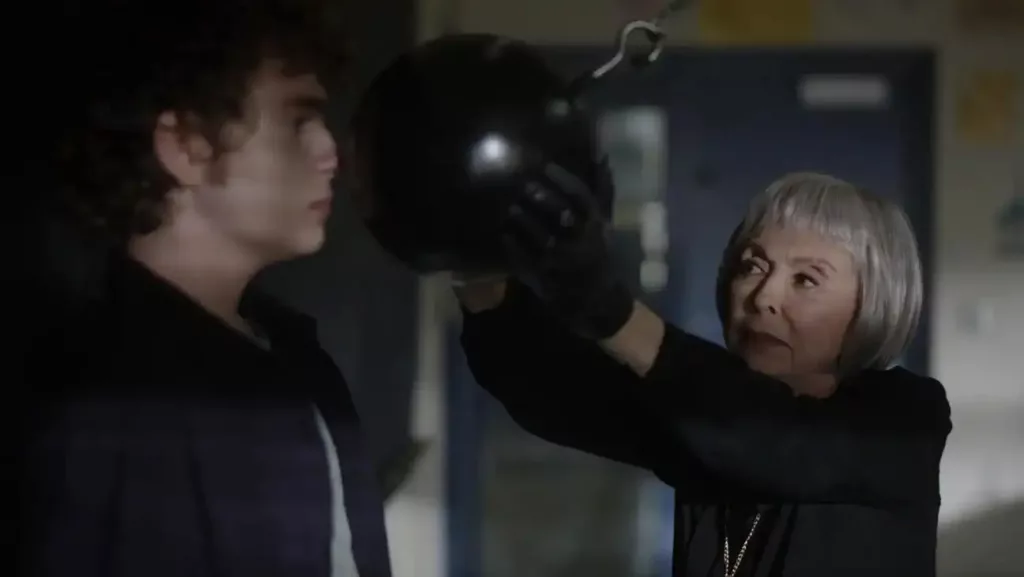
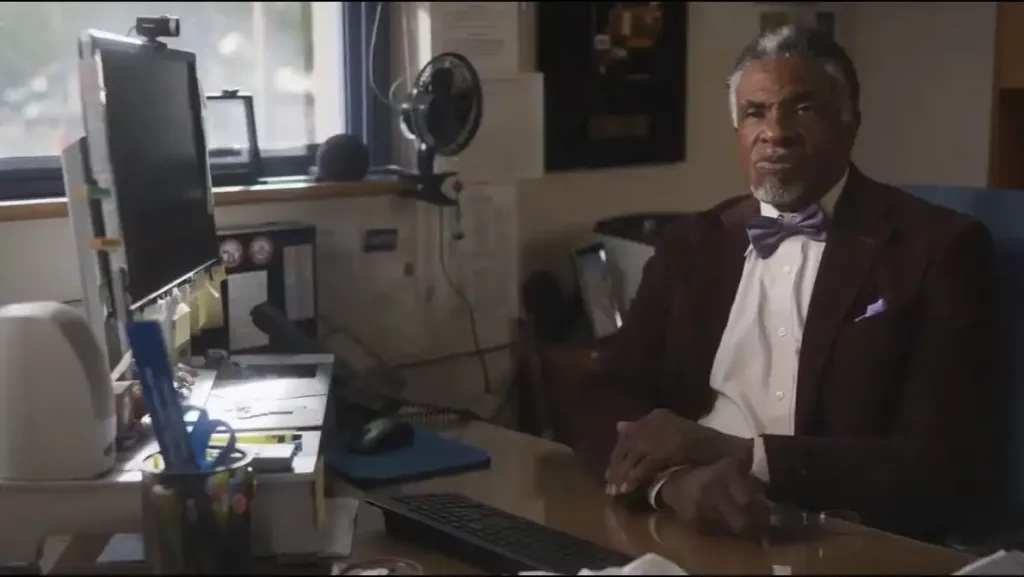
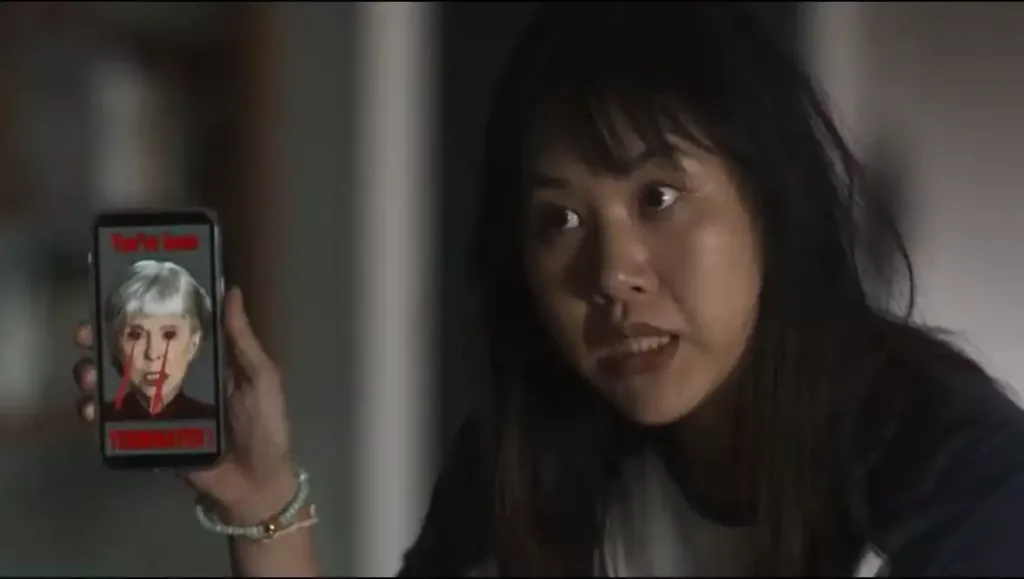
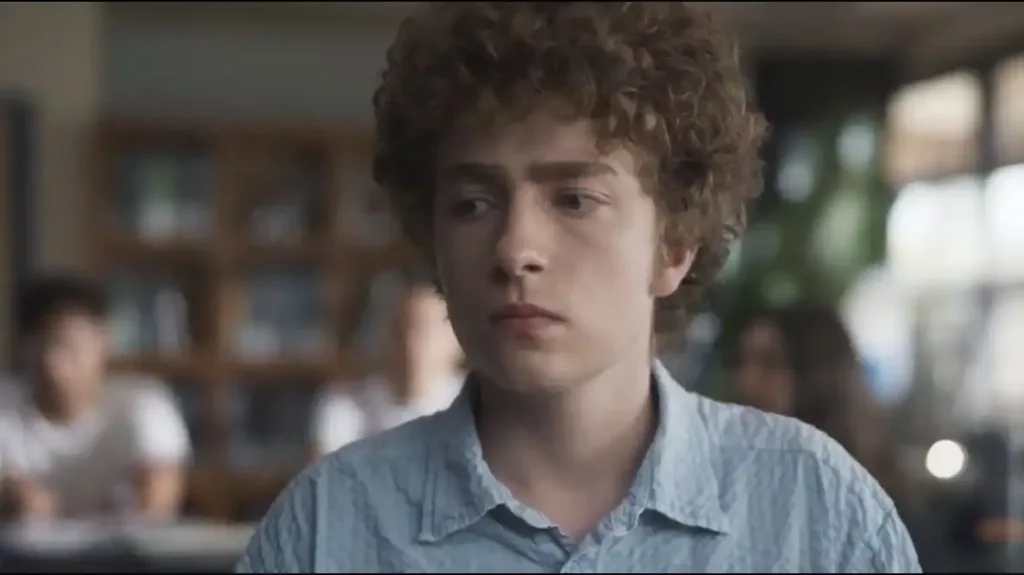
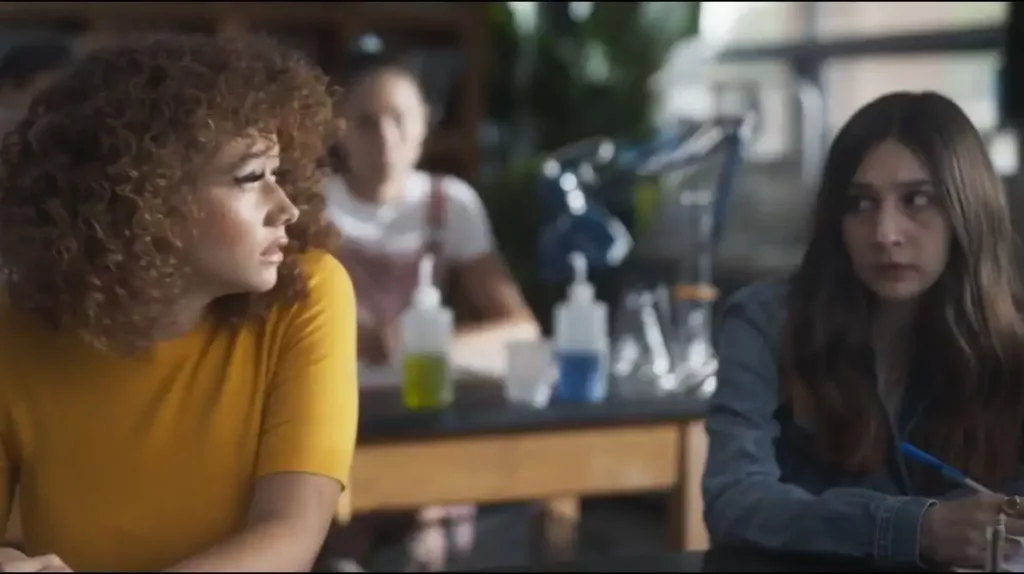



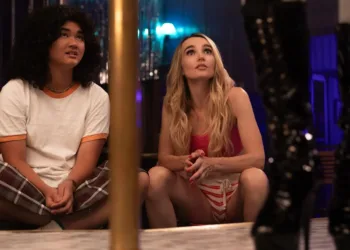

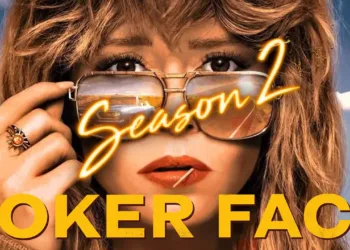


Discussion about this post